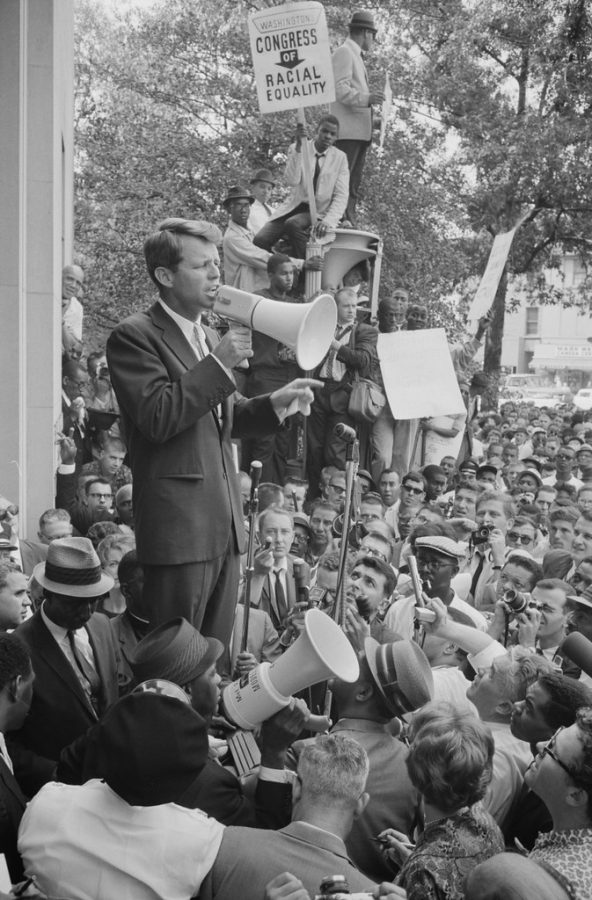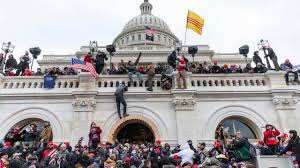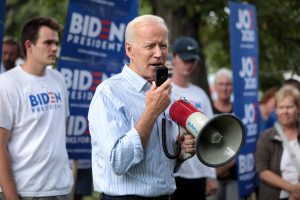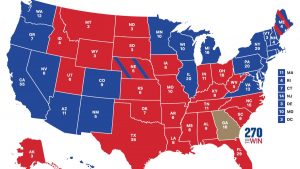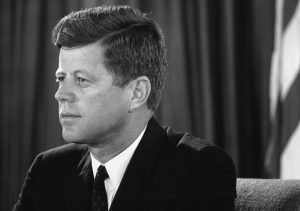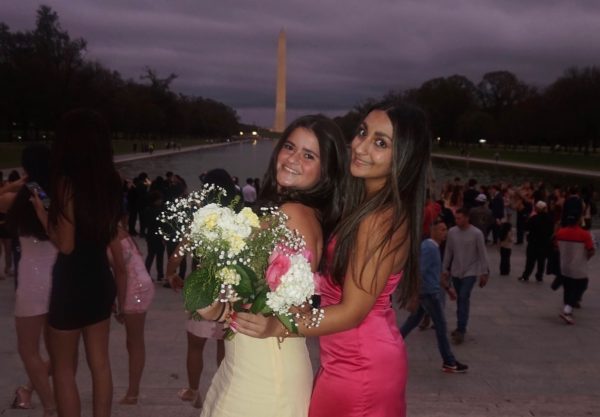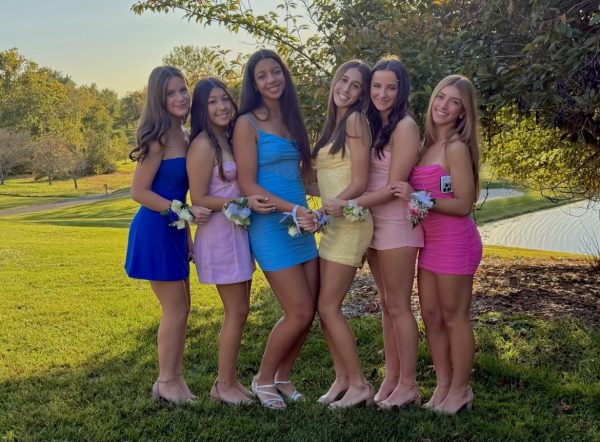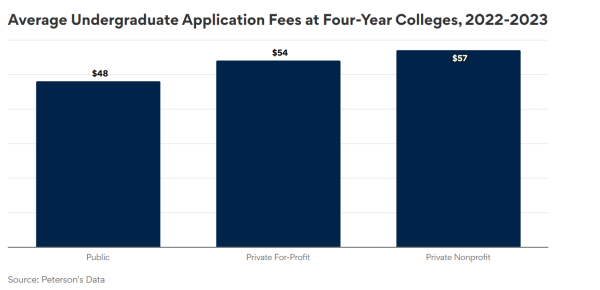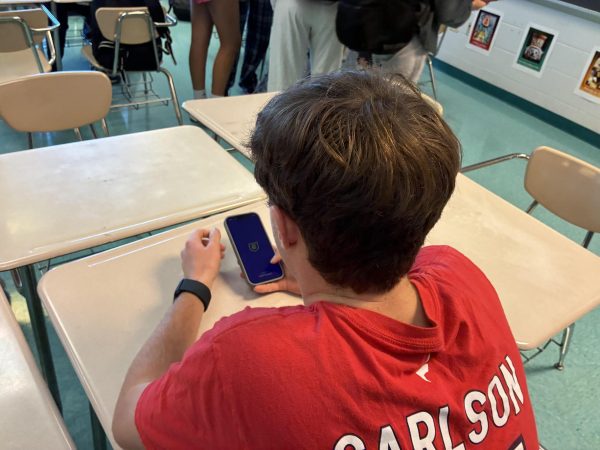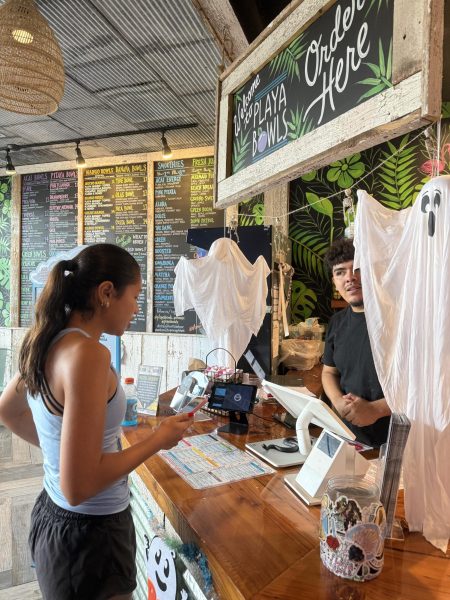Robert F. Kennedy: The legacy of the greatest president America never had
Photo by Warren K. Leffler used with permission from Google Commons
Senator Robert F. Kennedy speaks to Civil Rights demonstrators at the Justice Department.
The Kennedy family’s legacy is one of incredible leadership and rhetoric, of tragedy and lost years and as a vessel for the hope of the American people. This was best exemplified in Robert Kennedy, who served as the Attorney General, and a United States Senator. He was the younger brother to a slaughtered president, and had a bright future as the likely nominee for the 1968 Democratic presidential nomination. This potential as the leader an incredibly divided America needed was never realized due to an assassin’s bullet 53 years ago today.
He was born on Nov. 20, 1925 to Joseph P. Kennedy Sr., and Rose Kennedy. As a child he lived a life of privilege, growing up in a large, wealthy family as the seventh of nine children. He would go back and forth between his family’s homes in New York, Florida, Massachusetts, and London, where his father served as ambassador to the United Kingdom from 1938-1940. Robert Kennedy would later say “It was stressed in our family that because we had these tremendous advantages, we had a responsibility.”
He interrupted his time at Harvard University to serve his country in the Navy during World War II, and would escape the tragic fate of his brother, Joseph Kennedy Jr., a Navy pilot who was killed during the war. Kennedy would graduate in 1948. He earned a law degree from the University of Virginia in 1951.
His political career began with the managing of his brother John’s Senate campaign in 1952. According to History.com, Kennedy served as chief counsel to the Senate Select Committee on Improper Activities in the Labor or Management Field. He gained national attention for investigating corruption in the International Brotherhood of Teamsters, a powerful trade union led by Jimmy Hoffa. Kennedy left the committee in 1959 to manage his brother John’s successful presidential campaign.
His brother considered him for different cabinet positions, but he was appointed as the Attorney General. Despite allegations he was only appointed due to nepotism, he relentlessly pursued organized crime and overall corruption. One of his proudest achievements against organized crime was forming the evidence that would convict Hoffa of jury tampering, attempted bribery, conspiracy, and mail and wire fraud in 1964.
He was also a good leader on civil rights, ordering federal agents to protect Ross Barnett, the first Black man to attend the University of Mississippi. Along with his brother, he supported the efforts of the Freedom Riders. There were governmental figures who seemed hell-bent on the failure and discrediting of civil rights leaders, such as J. Edgar Hoover’s efforts to smear Martin Luther King, and one of Kennedy’s biggest failures was not raining in Hoover’s impulses.
Kennedy would look out for the safety of civil rights leaders. For example, in 1961 “after learning that a hostile mob threatened the civil rights leader Martin Luther King, Jr., and about 1,200 of his supporters in Montgomery, Alabama, Kennedy sent 400 federal marshals to protect them”.
After Kennedy left his role as Attorney General, the New York Times, which had strongly criticized his initial appointment, wrote “He named excellent men to most key posts, put new vigor into protecting civil rights through administrative action, and played a pivotal role in shaping the most comprehensive civil rights law in this century. Mr. Kennedy has done much to elevate the standard.”
Additionally, as the president’s brother, he was one of his closest advisers. After the disaster that was the Bay of Pigs, the president appointed him head of a task force that examined the causes of the failure. He also had an important role during the Cuban Missile Crisis. He was one of only two presidential advisers to predict the Soviet Union’s missile sights in Cuba, warning his brother nearly a year before the conflict. He was also a key figure in convincing the president of the merits of the blockade plan, designed to focus the Soviets to remove their missiles.
His time as one of the most powerful people in the White House would come to an end one tragic day in November. Kennedy was at his home, when his phone rang, and he was informed his brother was shot in Dallas. Kennedy would later remember that Hoover had little emotion in his voice. Kennedy initially feared that his efforts against the mob and the plot to kill Castro had led to a retaliatory attack on his brother. He even said, “I thought they’d get me.”
He would resign from his role as Attorney General and mourned the death of his brother. In 1964, he ran to represent New York in the Senate against an incumbent Republican. He was labeled as a “carpetbagger” by his opponents, somebody who tries to be elected in an area where they have no local connections, despite Kennedy spending part of his childhood in New York.
During a campaign stop at Columbia University, he refuted this claim, arguing “I tell you frankly I don’t need this title because I [could] be called General, I understand, for the rest of my life. And I don’t need the money and I don’t need the office space. Frank as it is — and maybe it’s difficult to believe in the state of New York — I’d like to just be a good United States Senator. I’d like to serve.”
Kennedy would win the election and spent his time as a Senator fiercely advocating for civil rights and social justice. He was transformed by trips he made to “Appalachia, the Mississippi Delta, migrant workers’ camps and urban ghettos to study the effects of poverty, and made trips abroad to such places as apartheid-ruled South Africa to advocate for the advancement of human rights”, according to History.com).
During this time President Lyndon Johnson was continuing to escalate the American troop presence in Vietnam. There were different reasons people objected to the Vietnam War, among them moral outrage at our conduct. This was demonstrated in the thousands of civilians killed during the war and atrocities such as the Mei Lei massacre. The soldiers being sent overseas were disproportionately poor and racial minorities.
Johnson would likely have lost in the Democratic primary if he sought reelection in 1968. The first candidate to oppose him was Eugene McCarthy. Nearly every adviser argued he should run, except for his brother, Senator Edward “Ted” Kennedy. He didn’t want his brother to meet their brother John’s fate. After seeing that the Democratic party was ready for a change, Kennedy announced his campaign from the Caucus Room of the Old Senate Office Building, the same place his brother did eight years earlier.
On Mar. 16, he declared “I do not run for the presidency merely to oppose any man, but to propose new policies. I run because I am convinced that this country is on a perilous course and because I have such strong feelings about what must be done, and I feel that I’m obliged to do all I can.”
Johnson announced he would not seek reelection on Mar. 31, hovering at a 35% approval rating, from his peak of 80% in early 1964, according to FiveThirtyEight. Kennedy was facing an uphill battle for the nomination, but his campaign continued to gain momentum.
His unrecognized potential as a leader was best displayed the night of Apr. 4, 1968. Martin Luther King had been shot and killed, and America would burn as a result. Riots would spread to nearly every major American city. Kennedy had an event scheduled in a place now known as the Kennedy-King neighborhood.
Local police warned him they could not provide protection for him if the mostly Black crowd rioted upon hearing the devastating news. Kennedy wrote his notes in the minutes he had after hearing the news, and what a task that was. Kennedy was given a few minutes to find a message that would advocate for peace, while still empathizing with the anger Americans were feeling. This was one of the most genuine and touching speeches in American history, and nobody was better suited to deliver it.
Kennedy quoted poets and scholars and preached peace and love because he knew the pain of loss. This message would live on, and serve as testament to his power. As mentioned earlier, America burned. Indianapolis, the place of his speech, was silent and peaceful as chaos swept the nation.
Kennedy’s coalition also demonstrated his unique appeal over different groups. The message of Kennedy’s 1968 campaign was inclusive populism, as opposed to the racially motivated populism of segregationist politicians like Goerge Wallace. He had support from poor people, racial minorities, Catholics, and even ex-George Wallace voters. He appealed to the better angels of American voters, and shined as a beacon of hope for millions.
Vice President Hubert Humprey was still the favorite. However, Kennedy would gain momentum as the contest went on, and would win the crucial California primary on June 4, 1968. As he was delivering his victory speech in the early morning, he was shot by Palestinian militant Sirhan Sirhan and would die 26 hours later. He was eulogized by his brother Ted,
His impact on Americans was most evident by the hundreds of thousands of heartbroken men, women and children, from big cities to small towns who watched his funeral train roll by and with it, the greatest president America never had.
Your donation will support the student journalists of Thomas S. Wootton High School. Your contribution will allow us to purchase equipment and cover our annual website hosting costs.
Ethan is a 2023 graduate.


